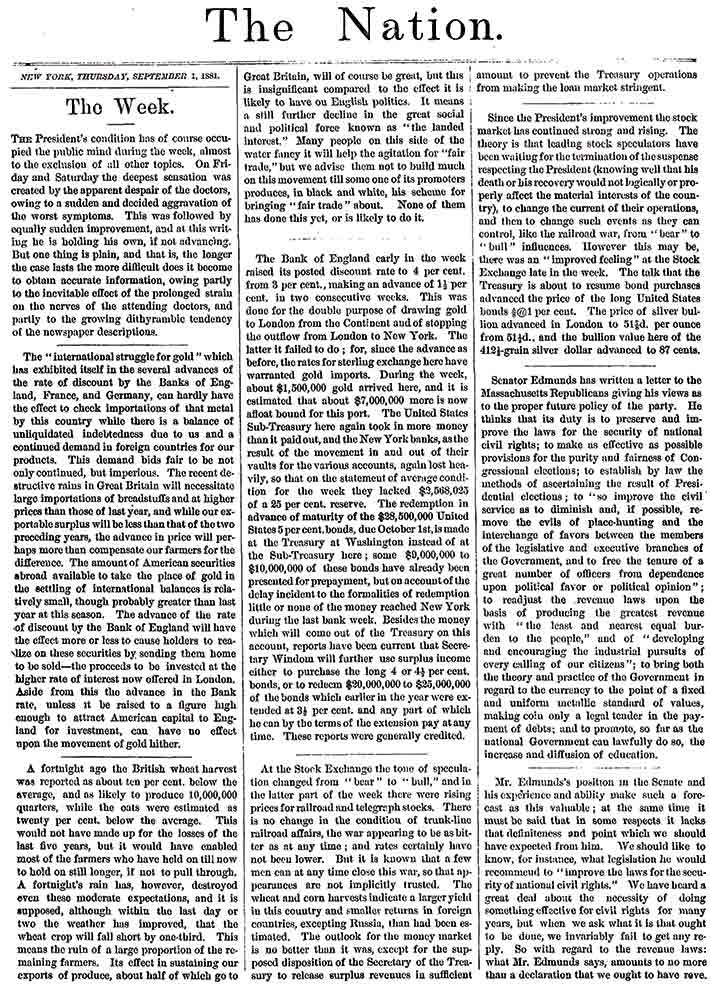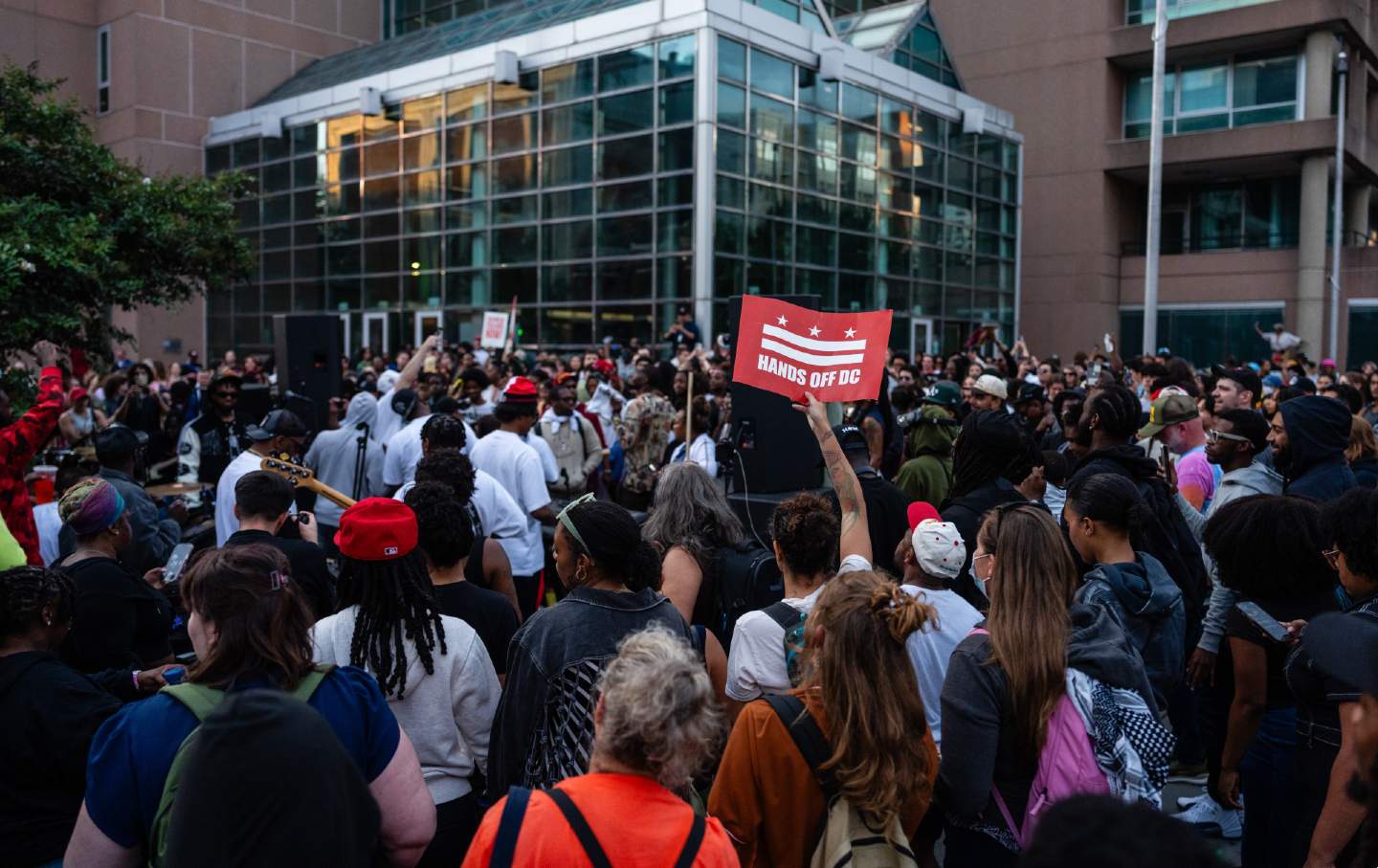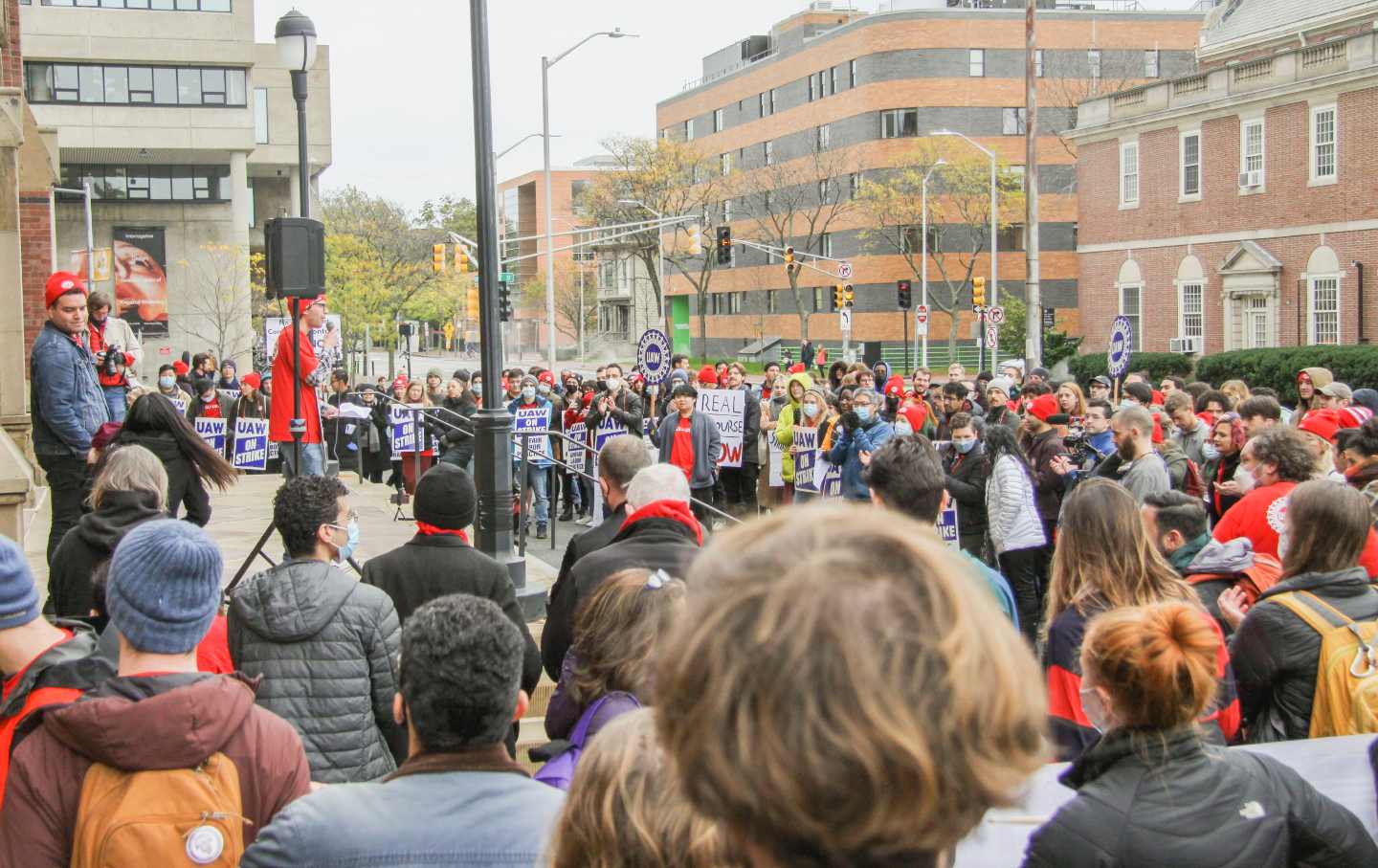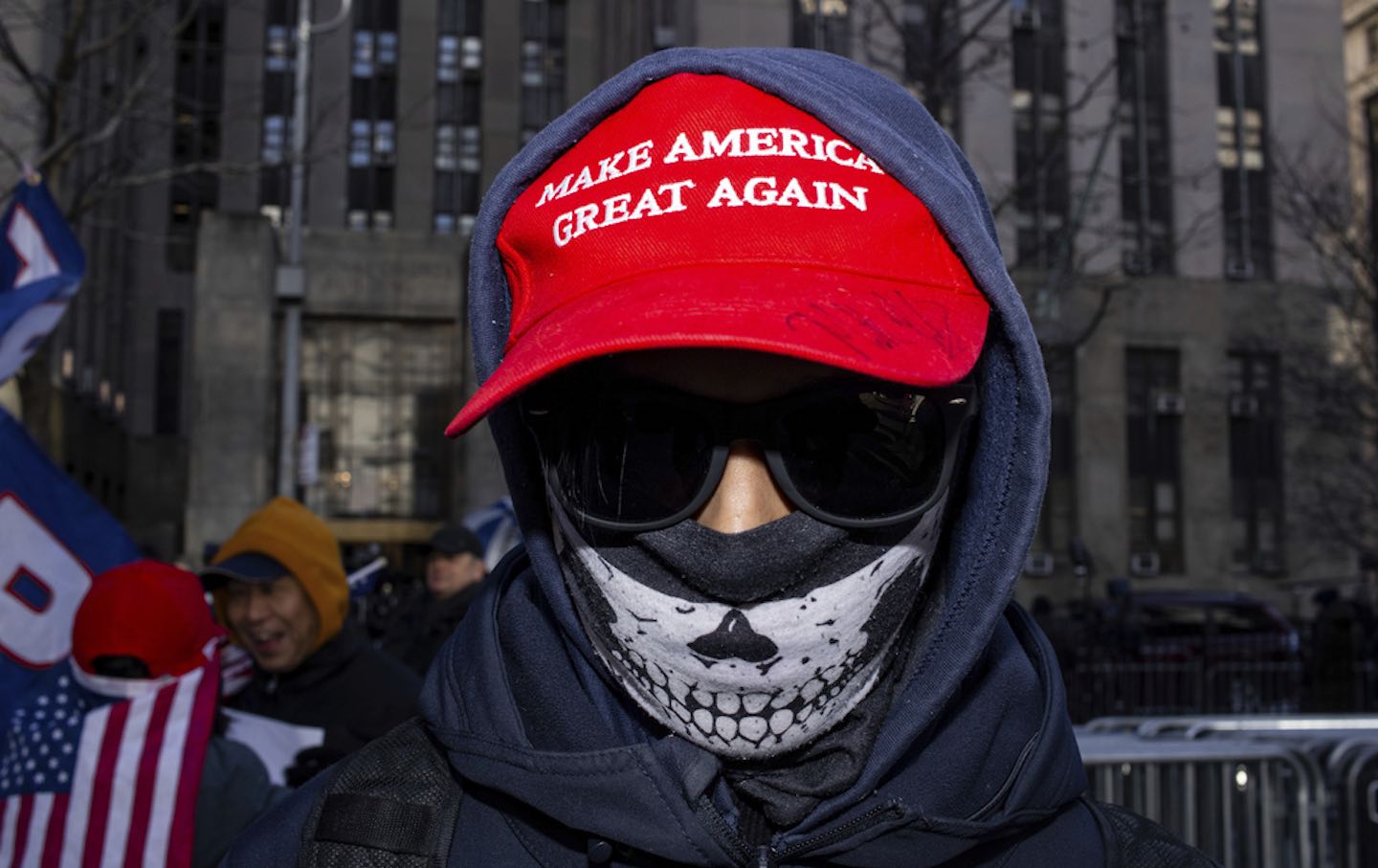Assassination Nation
The Nation magazine was founded in the startled wake of Abraham Lincoln’s murder—the first presidential assassination in the country. It wouldn’t be the last.

When the first issue of The Nation rolled off the presses in 1865, Abraham Lincoln’s body had been laid in the ground only weeks earlier. For years, the country remained in the grim shadow cast by the president’s assassination. And then it happened again—and again.
In 1881, James Garfield became the second president to be killed in office, shot by a jilted job-seeker who ambushed him at a Washington train station. The Nation noted an important contrast: Whereas the bullet fired at Lincoln’s head was “the last shot of the civil war,” coming as “men’s pulses were still throbbing with the hates and fears and hopes and sorrows of the struggle through which the country had just passed,” Garfield’s senseless slaying in a time of peace brought only “sympathy and sorrow,” with “no taste of bitterness or discord.” Indeed, as the attack was deplored by all parties and politicians, it “brought about a better understanding between the North and the South.” The universal condemnation proved, The Nation suggested, that there was no constituency for undermining the American form of government.
Four decades later, in 1912, a former saloonkeeper shot Theodore Roosevelt at a campaign rally in Milwaukee. The ex-president, who had ascended to the office when William McKinley was assassinated by an anarchist in 1901, was running for a third term on the Progressive Party ticket. The wounded Roosevelt drew accolades even from political foes for intervening in the chaotic moments after the shooting to prevent his assailant from being lynched; then, with the bullet lodged in his chest, he calmly finished his speech.
“There can be but one feeling in regard to the attempt to assassinate Mr. Roosevelt—a feeling of deep joy that he escaped with apparently slight injury,” The Nation reflected in its next issue. “Americans have reason to congratulate each other that their country has been spared another causeless murder of a public man…. We all felt a sort of patriotic humiliation when Garfield and McKinley were shot, and it is a profound satisfaction not to have to go through that again.” The editors—no fans of Roosevelt—praised his “characteristic coolness and pluck in danger” but took issue with those who argued “that the way to prevent such shocking and lamentable crimes is to forbid severe criticism of public men.”
“Free discussion is the very breath of our political life,” the editors wrote. “It is obvious that we cannot order or alter our whole plan of government by public discussion, merely because cranks and lunatics can get hold of deadly weapons and commit crimes that startle the world.”
Take a stand against Trump and support The Nation!
In this moment of crisis, we need a unified, progressive opposition to Donald Trump.
We’re starting to see one take shape in the streets and at ballot boxes across the country: from New York City mayoral candidate Zohran Mamdani’s campaign focused on affordability, to communities protecting their neighbors from ICE, to the senators opposing arms shipments to Israel.
The Democratic Party has an urgent choice to make: Will it embrace a politics that is principled and popular, or will it continue to insist on losing elections with the out-of-touch elites and consultants that got us here?
At The Nation, we know which side we’re on. Every day, we make the case for a more democratic and equal world by championing progressive leaders, lifting up movements fighting for justice, and exposing the oligarchs and corporations profiting at the expense of us all. Our independent journalism informs and empowers progressives across the country and helps bring this politics to new readers ready to join the fight.
We need your help to continue this work. Will you donate to support The Nation’s independent journalism? Every contribution goes to our award-winning reporting, analysis, and commentary.
Thank you for helping us take on Trump and build the just society we know is possible.
Sincerely,
Bhaskar Sunkara
President, The Nation








